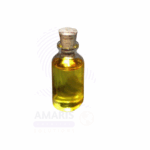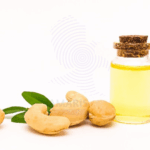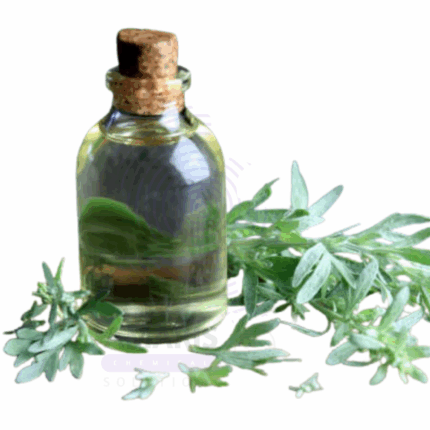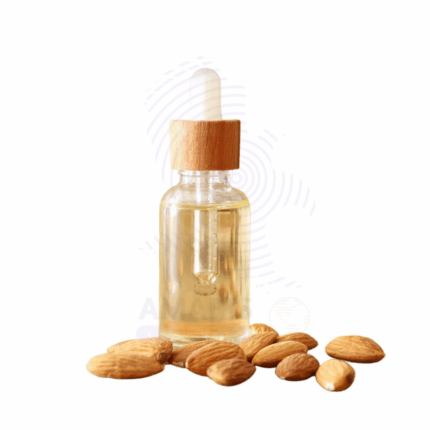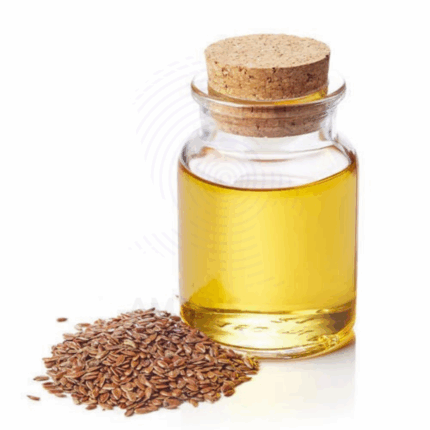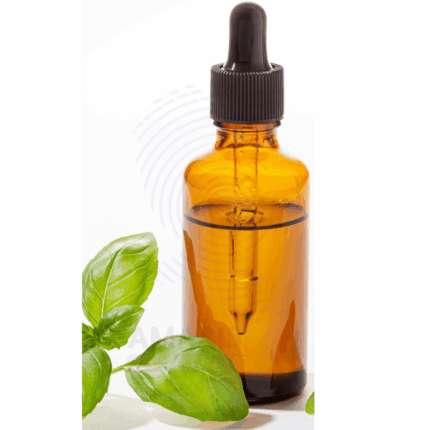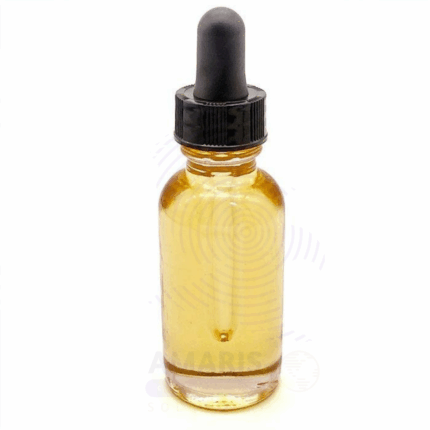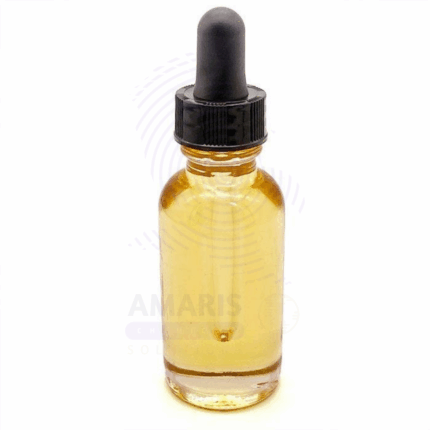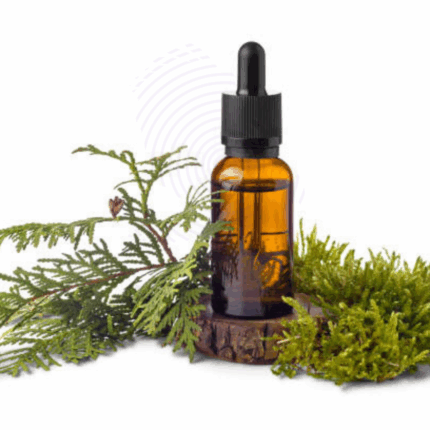Cardamon Oil
Whatsapp Order
Cardamon Oil is a premium essential oil steam-distilled from the seeds of Elettaria cardamomum, a plant native to India and Sri Lanka and widely cultivated across tropical regions. It carries a warm, spicy-sweet aroma with hints of eucalyptus and citrus, and ranges from colorless to pale yellow in appearance. Known for its digestive, antiseptic, expectorant, and uplifting qualities, it is valued in aromatherapy, perfumery, cosmetics, pharmaceuticals, and food applications.
Rich in compounds like cineole (1,8-cineole), α-terpineol, and linalyl acetate, Cardamom Oil provides both flavor and therapeutic effects, making it a versatile ingredient across several industries.
Description
Table of Contents
Toggle
Cardamon Oil
Primary Uses
- Pharmaceuticals
- Used in oral medications and herbal preparations to support digestion and relieve gas and bloating.
- Included in throat lozenges, cough syrups, and decongestant rubs for its expectorant and antimicrobial properties.
- Employed in Ayurvedic and traditional medicine to soothe colic, nausea, and headaches.
- Incorporated into digestive tonics and capsules.
- Cosmetics and Personal Care
- Added to skincare formulations for its toning, antibacterial, and rejuvenating properties.
- Used in soaps, deodorants, and facial cleansers for its refreshing aroma and antiseptic action.
- Employed in perfumery and body mists as a middle/top note with a spicy-sweet profile.
- Used in massage blends for muscle relaxation and improved circulation.
- Food & Beverage Industry
- Acts as a natural flavoring agent in bakery products, desserts, beverages, and spice blends.
- Added to teas, liqueurs, and chewing gum for its aromatic and digestive-enhancing effects.
- Used in flavor compounds for meat seasonings, sauces, and curries.
- Aromatherapy
- Used in blends for its uplifting, warming, and mentally clarifying properties.
- Helps reduce mental fatigue, stress, and nervous exhaustion.
Secondary Uses
- Household Products
- Occasionally included in natural air fresheners, room sprays, and incense blends.
- Used in botanical cleaning products for its antimicrobial and aromatic qualities.
KEY PRODUCT FEATURES
1. Basic Identification Attributes
- Botanical Source: Elettaria cardamomum
- Common/Trade Name: Cardamom Oil
- INCI Name: Elettaria Cardamomum Seed Oil
- CAS Number: 8000-66-6
- HS Code: 3301.29
- Synonyms: Green Cardamom Oil, True Cardamom Oil
2. Physical & Chemical Properties
- Physical State: Liquid
- Color & Odor: Colorless to pale yellow; warm, spicy-sweet, slightly eucalyptus aroma
- Solubility: Insoluble in water; soluble in alcohol and fixed oils
- Main Components: 1,8-Cineole, α-Terpinyl acetate, Linalyl acetate, α-Terpineol
- Refractive Index: ~1.462 – 1.466
- Specific Gravity: ~0.915 – 0.936
- Flash Point: ~60°C
3. Safety & Hazard Attributes
- GHS Classification: Not classified as hazardous
- Toxicity: Non-toxic when used appropriately; may cause irritation if used undiluted
- Allergen Information: Contains potential allergens (e.g., linalool, limonene); dilute before use
- Exposure Limits: Not established
4. Storage & Handling Attributes
- Storage Conditions: Store in airtight containers away from heat and light
- Container Type: Amber glass bottles or stainless steel drums
- Shelf Life: Up to 3 years with proper storage
- Handling Precautions: Avoid prolonged exposure to air; handle with clean, dry tools
5. Regulatory & Compliance Attributes
- Approved for food use by FDA and EFSA within safe limits
- IFRA-compliant for fragrance applications
- Suitable for cosmetic and pharmaceutical formulations under GMP standards
6. Environmental & Health Impact
- Biodegradability: Readily biodegradable
- Ecotoxicity: Low in typical use concentrations
- Bioaccumulation: Not expected
SAFETY HANDLING PRECAUTIONS
Safety Handling Precautions
- PPE Required: Gloves and goggles when handling in bulk
- Handling Guidelines: Avoid undiluted skin contact; use in well-ventilated areas
First Aid Measures
- Inhalation: Move to fresh air if irritation occurs
- Skin Contact: Wash with soap and water; discontinue use if irritation develops
- Eye Contact: Rinse with clean water for 15 minutes; seek medical attention if needed
- Ingestion: Rinse mouth and seek medical advice; do not induce vomiting
Firefighting Measures
- Fire Hazards: Flammable
- Extinguishing Media: Dry chemical, foam, or CO₂
- Special Precautions: Use self-contained breathing apparatus in large fires
- Hazardous Combustion Products: Carbon monoxide, carbon dioxide, and organic fumes
Related products
Absinth Oil
Absinth Oil, also known as Wormwood Essential Oil, is a highly aromatic essential oil extracted through steam distillation from the leaves and flowering tops of the Artemisia absinthium plant. Native to Europe and Asia and known historically for its use in absinthe liqueur, this oil features a sharp, bitter, herbaceous aroma with a green and slightly medicinal edge. Rich in thujone, chamazulene, and other bioactive compounds, Absinth Oil is known for its antimicrobial, anti-inflammatory, and digestive-stimulating properties.
While traditionally associated with herbal medicine and ritualistic use, modern applications of Absinth Oil span personal care, pharmaceuticals, and natural pest repellents. Due to its intensity and potential toxicity in high concentrations, it is used in very controlled amounts in fragrance and therapeutic blends. It is valued for its distinctive scent and potent botanical properties, particularly in cosmetics, aromatherapy, and natural cleaning formulations.
Almond Fragrance Oil
Almond Fragrance Oil is a synthetic or naturally blended aromatic compound designed to replicate the warm, sweet, and nutty scent of almonds. It may incorporate notes of marzipan, vanilla, or cherry-like tones to mimic the characteristic aroma of bitter almonds without the presence of cyanogenic compounds. Unlike essential oils, fragrance oils are created for consistent aroma performance and are widely used across cosmetics, personal care, household products, and scented formulations.
This versatile oil delivers a nostalgic, comforting scent often associated with desserts, cleanliness, and warmth. It is valued for its stability in soaps, lotions, candles, and air care products. Almond Fragrance Oil is typically formulated to be allergen-compliant and IFRA-certified for safe use across applications.
Ambrette Seed Oil
Ambrette Seed Oil is a rare, aromatic essential oil derived from the seeds of the Abelmoschus moschatus plant. Known for its rich, musky, slightly sweet, and floral scent, Ambrette Seed Oil is often considered a botanical alternative to animal-derived musk. It is widely prized in high-end perfumery, natural cosmetic formulations, and aromatherapy for its warm, sensual, and long-lasting aroma.
This oil is rich in ambrettolide and farnesol, compounds that lend it a delicate musky note without the synthetic harshness of artificial musks. Ambrette Seed Oil is non-toxic and safe for topical use when diluted, making it ideal for fine fragrances, massage oils, and therapeutic blends.
Basil sweet oil
Basil Sweet Oil is a high-quality essential oil extracted via steam distillation from the leaves and flowering tops of the Ocimum basilicum plant, known as Sweet Basil. This chemotype is rich in linalool and low in estragole, making it gentler and more suitable for topical use than other basil varieties. With a fresh, sweet, herbaceous, and slightly floral aroma, Basil Sweet Oil is highly valued in cosmetics, personal care, aromatherapy, and natural wellness formulations.
This essential oil is known for its clarifying, uplifting, and antiseptic properties. It supports mental clarity, soothes muscular tension, and offers anti-inflammatory and antimicrobial benefits for skin and scalp. Basil Sweet Oil is especially preferred in formulations targeting sensitive skin and emotional well-being.
Calamus Oil
Calamus Oil is a warm, spicy-aromatic essential oil obtained through steam distillation of the dried roots (rhizomes) of Acorus calamus, commonly known as sweet flag. This highly fragrant oil carries an earthy, woody, and slightly peppery scent with a leathery undertone. Traditionally valued in Ayurvedic and Unani medicine systems, Calamus Oil has found applications in perfumery, hair care, aromatherapy, and natural health preparations due to its stimulating, antimicrobial, and anti-inflammatory properties.
While effective in small external doses, Calamus Oil must be used with caution as it contains β-asarone, a compound restricted in internal use due to potential toxicity. It remains widely used in external formulations like massage oils, hair tonics, and perfumes.
Calmintha Oil
Calmintha Oil is an aromatic essential oil derived through steam distillation of the aerial parts of Calamintha nepeta or closely related species within the Calamintha genus. Also known as lesser calamint, Calmintha is a herbaceous plant known for its minty, slightly camphoraceous fragrance with subtle floral undertones. The oil is rich in compounds such as pulegone, menthone, and isomenthone, which contribute to its invigorating, clarifying, and antimicrobial properties.
Used in traditional herbal medicine, perfumery, and aromatherapy, Calmintha Oil offers refreshing aromatic effects and is frequently utilized in respiratory blends, skin formulations, and natural cleaning products. Due to its high pulegone content, topical use should be limited and well-diluted.
Capaiba Balsam Oil
Capaiba Balsam Oil is a natural oleoresin essential oil extracted from the trunks of Copaifera species, primarily Copaifera officinalis, native to South America. This oil is obtained via tapping or sustainable extraction methods and is prized for its anti-inflammatory, antibacterial, antioxidant, and analgesic properties. It has a sweet, woody, slightly balsamic aroma and is golden to light brown in color with a medium viscosity.
Copaiba Balsam Oil is rich in β-caryophyllene, a sesquiterpene known for its therapeutic effects, especially in skincare and wellness applications. It is widely used in cosmetics, personal care, aromatherapy, and pharmaceutical preparations, particularly those targeting pain, skin health, and inflammation.
Cedar Leaf Oil
Cedar Leaf Oil is a potent essential oil steam-distilled from the leaves and twigs of the Thuja occidentalis tree, also known as Northern White Cedar or Arborvitae. It has a sharp, camphoraceous, and woody aroma, largely due to its high thujone content. This oil is known for its antifungal, antiseptic, and insect-repellent qualities, making it a popular component in cosmetics, aromatherapy, natural cleaning products, and insecticides. It also plays a role in herbal and wellness applications when used topically and in moderation due to its potency.


 Preservatives(food)
Preservatives(food) Flavor Enhancers
Flavor Enhancers Acidulants
Acidulants Sweeteners
Sweeteners Antioxidants
Antioxidants Colorants(food)
Colorants(food) Nutraceutical Ingredients (food)
Nutraceutical Ingredients (food) Nutrient Supplements
Nutrient Supplements Emulsifiers
Emulsifiers
 Collectors
Collectors Dust Suppressants
Dust Suppressants Explosives and Blasting Agents
Explosives and Blasting Agents Flocculants and Coagulants
Flocculants and Coagulants Frothers
Frothers Leaching Agents
Leaching Agents pH Modifiers
pH Modifiers Precious Metal Extraction Agents
Precious Metal Extraction Agents
 Antioxidants(plastic)
Antioxidants(plastic) Colorants (Pigments, Dyes)
Colorants (Pigments, Dyes) Fillers and Reinforcements
Fillers and Reinforcements Flame Retardants
Flame Retardants Monomers
Monomers Plasticizers
Plasticizers Polymerization Initiators
Polymerization Initiators Stabilizers (UV, Heat)
Stabilizers (UV, Heat)
 Antifoaming Agents
Antifoaming Agents Chelating Agents
Chelating Agents Coagulants and Flocculants
Coagulants and Flocculants Corrosion Inhibitors
Corrosion Inhibitors Disinfectants and Biocides
Disinfectants and Biocides Oxidizing Agents
Oxidizing Agents pH Adjusters
pH Adjusters Scale Inhibitors( water)
Scale Inhibitors( water)
 Antioxidants(cosmetic)
Antioxidants(cosmetic) Emollients
Emollients Fragrances and Essential Oils
Fragrances and Essential Oils Humectants
Humectants Preservatives
Preservatives Surfactants(cosmetic)
Surfactants(cosmetic) Thickeners
Thickeners UV Filters
UV Filters
 Fertilizers
Fertilizers Soil Conditioners
Soil Conditioners Plant Growth Regulators
Plant Growth Regulators Animal Feed Additives
Animal Feed Additives Biostimulants
Biostimulants Pesticides (Herbicides, Insecticides, Fungicides)
Pesticides (Herbicides, Insecticides, Fungicides)
 Active Pharmaceutical Ingredients (APIs)
Active Pharmaceutical Ingredients (APIs) Excipients
Excipients Solvents(pharmaceutical)
Solvents(pharmaceutical) Antibiotics
Antibiotics Antiseptics and Disinfectants
Antiseptics and Disinfectants Vaccine Adjuvants
Vaccine Adjuvants Nutraceutical Ingredients (pharmaceutical)
Nutraceutical Ingredients (pharmaceutical) Analgesics & Antipyretics
Analgesics & Antipyretics
 Analytical Reagents
Analytical Reagents Solvents(lab)
Solvents(lab) Chromatography Chemicals
Chromatography Chemicals Spectroscopy Reagents
Spectroscopy Reagents microbiology-and-cell-culture-reagents
microbiology-and-cell-culture-reagents Molecular Biology Reagents
Molecular Biology Reagents Biochemical Reagents
Biochemical Reagents Inorganic and Organic Standards
Inorganic and Organic Standards Laboratory Safety Chemicals
Laboratory Safety Chemicals Specialty Laboratory Chemicals(Special Laboratory Equipment)
Specialty Laboratory Chemicals(Special Laboratory Equipment)
 Demulsifiers
Demulsifiers Hydraulic Fracturing Fluids
Hydraulic Fracturing Fluids Scale Inhibitors(oil)
Scale Inhibitors(oil) Surfactants(oil)
Surfactants(oil) Drilling Fluids
Drilling Fluids
 Dyes and Pigments
Dyes and Pigments Bleaching Agents
Bleaching Agents Softening Agents
Softening Agents Finishing Agents
Finishing Agents Antistatic Agents
Antistatic Agents
 Admixtures
Admixtures Waterproofing Agents
Waterproofing Agents Sealants and Adhesives
Sealants and Adhesives Curing Compounds
Curing Compounds Concrete Repair Chemicals
Concrete Repair Chemicals Anti-Corrosion Coatings
Anti-Corrosion Coatings
 Surfactants(cleaning)
Surfactants(cleaning) Builders
Builders Enzymes
Enzymes Solvents (Cleaning)
Solvents (Cleaning) Fragrances
Fragrances
 Electronic Chemicals
Electronic Chemicals Catalysts
Catalysts Lubricants
Lubricants Photographic Chemicals
Photographic Chemicals Refrigerants
Refrigerants Automotive chemicals
Automotive chemicals Pyrotechnic Chemicals
Pyrotechnic Chemicals
 Biodegradable Surfactants
Biodegradable Surfactants Bio-based Solvents
Bio-based Solvents Renewable Polymers
Renewable Polymers Carbon Capture Chemicals
Carbon Capture Chemicals Wastewater Treatment Chemicals
Wastewater Treatment Chemicals
 Pigments
Pigments Solvents(paint)
Solvents(paint) Specialty Coatings
Specialty Coatings Binders/Resins
Binders/Resins Additives
Additives Driers
Driers Anti-Corrosion Agents
Anti-Corrosion Agents Functional Coatings
Functional Coatings Application-Specific Coatings
Application-Specific Coatings
 Leavening Agents
Leavening Agents Dough Conditioners
Dough Conditioners Flour Treatments
Flour Treatments Fat Replacers
Fat Replacers Decoratives
Decoratives Preservatives(baking)
Preservatives(baking)
 Plasticizers & Softeners
Plasticizers & Softeners Reinforcing Agents
Reinforcing Agents Adhesion Promoters
Adhesion Promoters Vulcanizing Agents
Vulcanizing Agents Antidegradants
Antidegradants Blowing Agents
Blowing Agents Fillers & Extenders
Fillers & Extenders Accelerators & Retarders
Accelerators & Retarders
